Fleet Commander Vice-Admiral Ben Key and Commander of UK Maritime Forces Rear Admiral Alex Burton hosted the first Joint Expeditionary Force (Maritime) conference.
Topics discussed included JEF(M) leadership in the Baltic Sea and increased collaboration in the North Atlantic to support NATO.
Commodore Andrew Burns said:
“This deployment is a hugely important task for the Royal Navy, and for Defence, demonstrating our ability to deploy and operate worldwide, engaging closely with our allies and standing ready for whatever a deployment to an area of strategic interest to the UK can present.”
The aim of the JEF is to create a UK military framework,’focused around its existing high readiness capabilities’, that partners can join up with. While it is the UK’s intention to fully integrate the UK’s JEF partners’ contributions before 2018, the JEF could deploy immediately if required according to Defence Secretary Michael Fallon.
It is designed with the following requirements in mind:
a. act jointly and with allies, but able to act alone
b. be well equipped, but not tied to platforms
c. adapt as the environment changes
Rear Admiral Burton said:
“It was a real privilege to meet the naval commanders from our JEF partner nations for the first time. I look forward to strengthening our working relationship in the future.”
The Royal Navy were keen to point out that the JEF can also integrate into larger international force, such as NATO for a multinational response to a strategic threat.




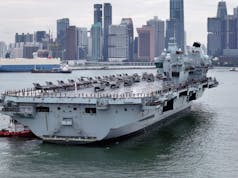
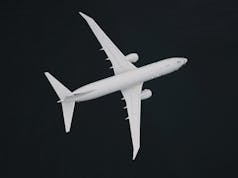

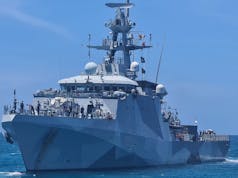
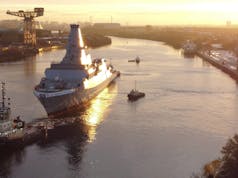

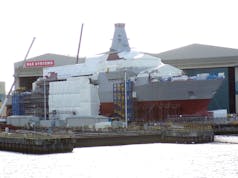


P&O have ferries to.
Hope ours are better equipped.
Three big ships shown – and not a single missile among them!
It is a bit embarrasing that being able to field 3 ships with no escorts, is considered a demonstration of our ability to deploy worldwide.
Those three ships can carry a full Royal Marine battle group of personnel plus helicopters and Apache helicopters, im sure in a war situation they would have enough escorts probably including other NATO escorts to help out with their protection.
Less pessimism please.. impressive picture !
Depends on the war. If we had another Falklands equiv where we went it alone, we would have no NATO support. The press article was about Britain demonstrating it can act alone and this in my opinion proves the reverse, we don’t have the escorts to be able to act alone, without calling in ships from other important tasks. In addition to ships the hardware on board seemed to be very limited, considering the number of helicopters and heavy land units. For example there appeared to be no form of air defence ground units on board to protect any landing.
I also think the comment from Nathan is quite insulting to the Royal Navy comparing the three ships to civilian ferries..
If there was another Falklands war the chances are we would send troops down there via air transport, of which we have a handy fleet of transport aircraft plus extra typhoon jets and quite possibly a
submarine.
Also taking into account the UK has garrison of 1000 personnel down there plus 200 FI defence force and the Argentinian forces are much weaker than they used to be including no useful jets to use against the Falklands, there should not be any problems for many years to come if at all.
Cannot really envisage the UK doing a military operation by it’s self at the present time, most military operations will be with allies in the future..
When you look at the world map… There are not too many places that Britain would need to act alone. I could imagine the UK being able to do a Sierra Leon type military operation in the future with the new carriers. But the world has changed so much, most military operations will be coalition operations.
Saying that we ‘don’t envisage the UK doing a military operation by itself at the present time’ is extremely shortsighted and frankly – dangerous. The point being we have to be ready and properly equipped for any and all eventualities – including acting alone – and that is the responsibility of government. This is especially more pressing today given President Trump’s ominous warning to the Europeans to pay-up or else (and I don’t blame him!). If the Europeans continue to ignore their obligations, I can just as easily see Mr. Trump opting to ‘pass’ on the next military operation with our allies – then what?? The way we are right now, without the US I’d hate to be depending on the Germans, Spanish or Italians for help! Remember Libya?? We still needed US help and that was a relatively low-level affair altogether!
We’ll see